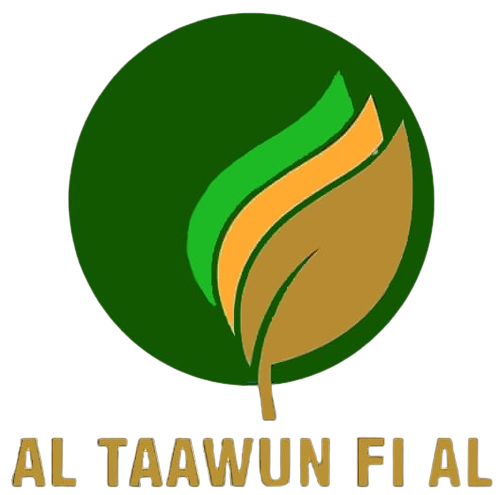Our Mission
Doing Work that matters for the people who care.
INSURE Skills develome IN AFRICA
Non-profit organizations (NPOs) can ensure skills development through several approaches:
Training Programs: NPOs can design and implement training programs that are tailored to the needs of their target audience. This could include workshops, seminars, online courses, or other forms of training that provide participants with the skills and knowledge they need to develop their capabilities.
Mentoring and Coaching: NPOs can establish mentoring or coaching programs where experienced individuals can provide guidance, support, and feedback to less experienced individuals. This can help develop skills through one-on-one interactions and personalized guidance.
Partnerships with Educational Institutions: NPOs can collaborate with educational institutions, such as schools, colleges, or universities, to provide access to formal education or vocational training programs. This can help individuals acquire recognized qualifications and develop valuable skills.
Humanitarian aid
the needs of affected populations, and the capacities of the humanitarian organizations involved. However, here are some key principles and practices that can help ensure effective humanitarian aid:
Needs Assessment: Conduct thorough needs assessments to accurately identify the needs and vulnerabilities of affected populations. This can involve gathering data on the demographics, health status, shelter, food security, water, sanitation, and other critical needs of affected communities.
Coordination and Collaboration: Promote coordination and collaboration among humanitarian actors, including local, national, and international organizations, to ensure a coherent and efficient response. This can involve establishing coordination mechanisms, sharing information, and avoiding duplication of efforts.
Humanitarian Principles: Adhere to the core humanitarian principles of humanity, neutrality, impartiality, and independence. Humanitarian aid should be provided based on need, without discrimination, and without taking sides in conflicts or political disputes
Senior citizen programs
Senior citizen programs refer to various initiatives, services, and activities designed to support and promote the well-being of older adults, typically those who are 60 years of age or older. These programs aim to address the unique needs and challenges faced by older adults and provide opportunities for them to lead healthy, engaged, and fulfilling lives. Senior citizen programs can be offered by government agencies, non-profit organizations, community-based organizations, and private entities, and may include:
Health and wellness programs: These programs focus on promoting physical and mental health among older adults, including exercise classes, nutrition education, mental health support, and health screenings.
Social and recreational programs: These programs provide opportunities for older adults to socialize, engage in leisure activities, and pursue hobbies and interests. This may include social clubs, senior centers, arts and crafts classes, and organized outings.
Educational programs: These programs offer opportunities for older adults to continue learning and engage in lifelong education, such as computer classes, language courses, and educational workshops on various topics.
Volunteer and community engagement programs: These programs encourage older adults to give back to their communities and stay active through volunteer work, community service, and civic engagement activities.
Caregiver support programs: These programs provide resources, education, and support for caregivers who are taking care of older adults, including caregiver support groups, respite care services, and caregiver education workshops.
Dawah Classes & ImaAm
Daawah classes play a crucial role in empowering Muslims to effectively communicate the message of Islam in a compassionate and knowledgeable manner. They help individuals develop the necessary knowledge, skills, and attitudes to engage in daawah efforts with confidence, clarity, and wisdom. Daawah classes also emphasize the importance of understanding the needs and concerns of the audience, promoting tolerance and mutual respect, and addressing misconceptions and stereotypes about Islam. By providing proper education and training, daawah classes contribute to the positive representation of Islam and the building of bridges between Muslims and people of other faiths or no faith. Imam empowerment programs may include formal education in Islamic theology, jurisprudence, and leadership, as well as training in pastoral care, community development, and social justice. These programs aim to enhance the Imams' understanding of Islam and their ability to provide relevant guidance and leadership to their communities. Imam empowerment may also involve mentoring, networking, and capacity-building activities to help Imams develop their leadership skills, communication abilities, and community engagement strategies.
Empowering Imams is important for the overall well-being of the Muslim community, as they serve as key spiritual and social leaders. Empowered Imams are better equipped to address the needs and challenges faced by their communities, provide guidance on religious matters, promote inclusivity and diversity, and contribute to positive community development. Empowered Imams can also play a critical role in promoting social cohesion, interfaith harmony, and civic engagement among Muslims and the wider society.
Youth programmes
These programs often focus on providing opportunities for personal, social, and professional growth, and aim to prepare young people for their future roles as leaders, innovators, and active members of society. Youth building programs can take various forms and may be implemented by government agencies, non-profit organizations, educational institutions, or other stakeholders. Here are some common types of youth building programs:
Leadership Development: These programs focus on fostering leadership skills among young people, such as communication, decision-making, problem-solving, and teamwork. They may include workshops, training sessions, mentorship programs, and experiential learning opportunities that aim to cultivate leadership qualities and empower young people to become effective leaders in their communities.
Career Development: These programs provide guidance, support, and resources to help young people explore and prepare for their future careers. They may include career counseling, skills training, job placement assistance, and internships or apprenticeships that help young people gain practical experience and develop the skills necessary for the workforce.
Entrepreneurship Programs: These programs aim to foster entrepreneurial skills and mindset among young people, encouraging them to create their own businesses or social enterprises. They may provide training on business planning, financial management, marketing, and other key aspects of entrepreneurship, as well as mentorship and networking opportunities to support young entrepreneurs in launching and growing their ventures.
Women empowerment
Women empowerment programs are initiatives that aim to promote gender equality, empower women, and create a more inclusive and equitable society where women have equal rights, opportunities, and access to resources. These programs often focus on addressing the systemic barriers and discrimination that women face, and promoting their social, economic, and political empowerment. Here are some common types of women empowerment programs:
Education and Skill Development: These programs focus on providing girls and women with access to quality education and skill development opportunities. They may include initiatives such as scholarships, vocational training, mentoring, and literacy programs that help women acquire knowledge, skills, and capabilities to improve their economic prospects and participate in decision-making processes.
Economic Empowerment: These programs aim to enhance the economic status and financial independence of women. They may include initiatives such as microfinance programs, entrepreneurship training, access to credit and markets, and support for income-generating activities that enable women to start and sustain their own businesses, generate income, and achieve economic autonomy.
Leadership and Political Participation: These programs focus on promoting women's leadership and participation in political and decision-making processes. They may
Health and Well-being: These programs aim to improve the health and well-being of women, including their sexual and reproductive health, maternal health, and mental health. They may include initiatives such as health education, access to healthcare services, and awareness campaigns that promote gender-sensitive and rights-based approaches to women's health.
Gender-Based Violence Prevention and Response: These programs aim to prevent and address gender-based violence, including domestic violence, sexual harassment, and trafficking. They may include initiatives such as awareness raising, legal and psychosocial support, and prevention strategies that aim to change social norms, promote gender equality, and create safe and inclusive environments for women.
Community Libraries
Access to Books and Resources: Community libraries typically provide a wide range of books, including fiction, non-fiction, children's books, and reference materials, that are available for community members to borrow or use on-site. These libraries may also offer access to other educational resources, such as newspapers, magazines, educational videos, and online databases, to promote lifelong learning and information literacy.
Literacy and Education Programs: Community libraries often offer literacy and education programs to promote reading, learning, and skill development among community members. These programs may include reading clubs, writing workshops, language classes, computer literacy training, and other educational activities that support community members in acquiring knowledge and developing skills.
Local Ownership and Participation: Community libraries are often initiated, managed, and governed by local organizations, non-profit groups, or community members themselves, which ensures that the library is responsive to the needs and aspirations of the local community. Community members may be involved in the planning, design, and operation of the library, and may volunteer or contribute in various ways to sustain and promote the library as a community asset.Digital Inclusion: In the digital age, community libraries may also offer access to computers, internet, and digital resources, to promote digital literacy and inclusion among community members. This can help bridge the digital divide and provide opportunities for community members to develop digital skills, access online information, and participate in the digital economy.
Exchange Programs
Exchange programs are initiatives that facilitate the exchange of knowledge, skills, and best practices among non-profit organizations across different regions, countries, or cultures. These programs aim to promote collaboration, mutual learning, and capacity building among non-profit organizations, and foster cross-cultural understanding and cooperation. Here are some key aspects of NPO exchange programs:
Knowledge and Skill Exchange: NPO exchange programs often facilitate the sharing of knowledge, skills, and best practices among non-profit organizations. This may include exchanging information on organizational management, fundraising, program design and implementation, monitoring and evaluation, and other areas of expertise. The exchange may happen through various channels, such as workshops, seminars, webinars, online platforms, or peer-to-peer learning opportunities.
Cross-Cultural Understanding: NPO exchange programs promote cross-cultural understanding and cooperation among non-profit organizations from different regions, countries, or cultures. Through interactions, discussions, and collaborations, non-profit organizations can learn about different cultural contexts, social issues,
Community Libraries
A scholarship with the international community refers to a funding opportunity that is offered to individuals from different countries or regions around the world to support their academic pursuits. These scholarships are often provided by governments, organizations, foundations, or universities with the aim of promoting international cooperation, fostering global understanding, and building relationships among countries.
Scholarships with the international community can cover various fields of study, including but not limited to science, technology, engineering, mathematics, social sciences, humanities, arts, and business. They can be awarded at different levels of education, ranging from undergraduate to postgraduate and doctoral studies.
Benefits of Scholarships with International Community:
Financial Support: Scholarships with the international community provide financial support to cover tuition fees, accommodation, living expenses, and other related costs, which can help alleviate the financial burden for students studying abroad.
Global Exposure: Studying with international scholarships allows students to gain global exposure and experience diverse cultures, languages, and perspectives. This can broaden their horizons, enhance their intercultural skills, and prepare them for global careers.
Academic Excellence: Scholarships with the international community are often awarded based on merit and academic excellence. This recognition can boost a student's confidence and motivation to excel academically, leading to better educational outcomes.
Networking Opportunities: Scholarships with the international community provide opportunities for students to network with fellow scholars, professors, and professionals from different countries. This can build a strong international network and open doors for future collaborations and career opportunities.
Your Small Help Make World Better!
Help us support their work – make a donation
OUR Impact
To improve is to change; to be perfect is to change often.” -Winston Churchill


